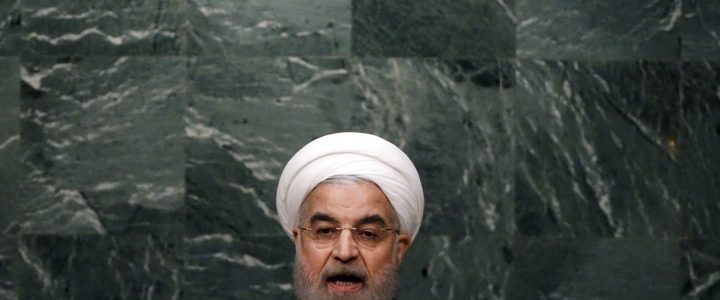
One would think that Tehran might welcome President Donald Trump’s recent announcement that he is willing to meet with his Iranian counterparts “any time they want” with “no preconditions.” After all, Trump’s offer could be interpreted both as a vindication of Tehran’s refusal to blink first, and as a timely relief for an embattled Iranian economy. Only days earlier, Trump had issued an all-caps tweet vowing that Iran would face “CONSEQUENCES THE LIKES OF WHICH FEW THROUGHOUT HISTORY HAVE EVER SUFFERED BEFORE” if it dared threaten America again. Rather than yielding to the president’s warning, Iran dismissed it, and lobbed yet another threat of its own.
Trump’s apparent retreat to a more conciliatory tone affirmed, yet again, the vacuity of his rhetoric. The Islamic Republic may have seized upon his shift as evidence that he, not they, had backed down. At the same time, Iran’s leaders are struggling with a virtually unprecedented corrosion of their currency. With the reimposition of U.S. sanctions only days away, the announcement of a summit between Trump and Iranian President Hassan Rouhani might have cushioned the blow.
That, however, was not to be. Rather than accepting Trump’s invitation, Tehran reacted with collective indifference—a stance that is only likely to harden over time.

